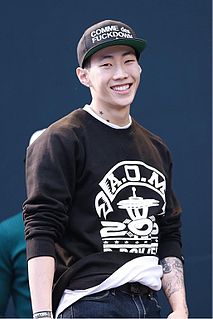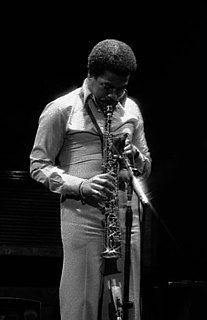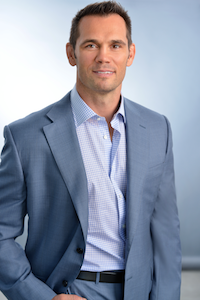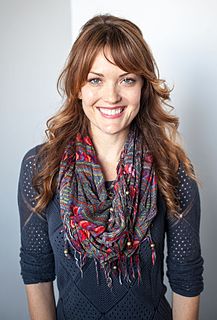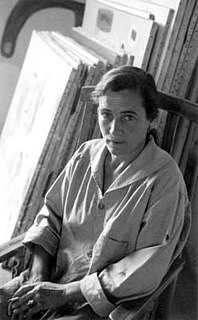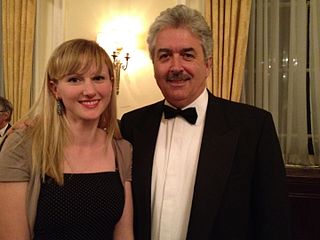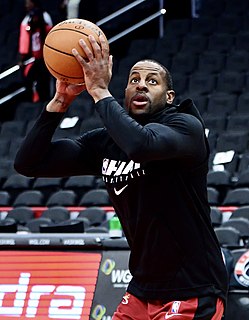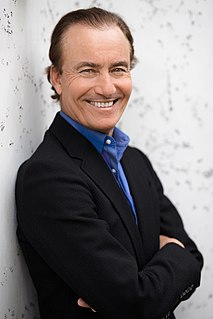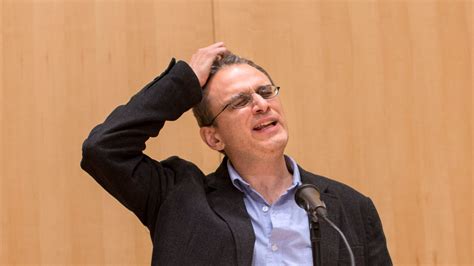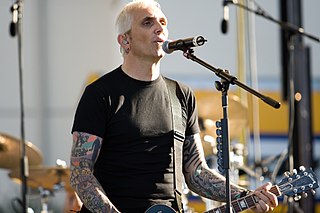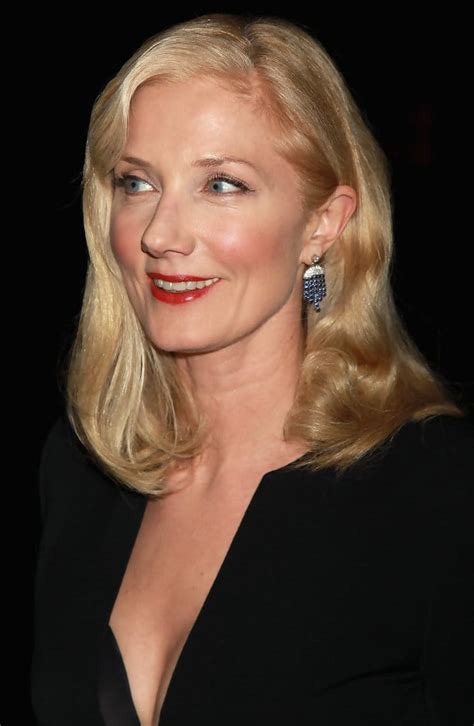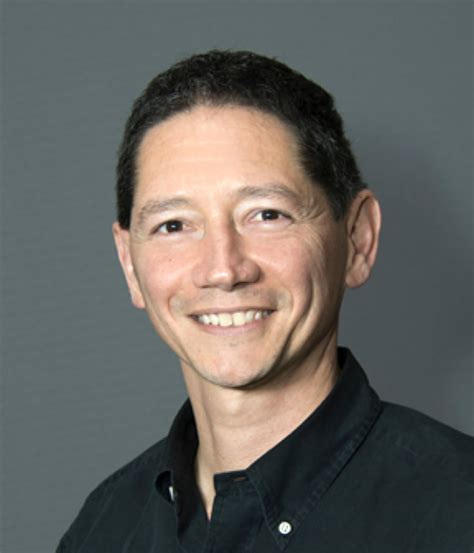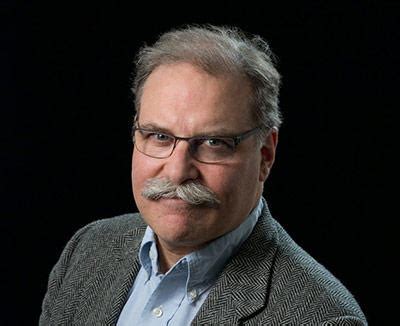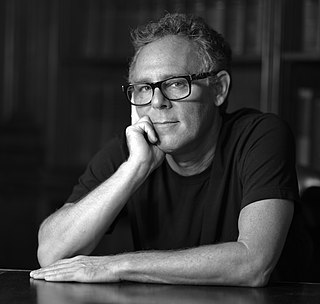Top 1200 Learning From Mistakes Quotes & Sayings - Page 19
Explore popular Learning From Mistakes quotes.
Last updated on April 19, 2025.
There is, so I believe, in the essence of everything, something that we cannot call learning. There is, my friend, only a knowledge-that is everywhere, that is Atman, that is in me and you and in every creature, and I am beginning to believe that this knowledge has no worse enemy than the man of knowledge, than learning.
I recommend learning how to come into the presence of stillness and vastness. Learn any form of meditation. Spend twenty minutes every day if possible, in meditation, listening to the crazy monkey mind inside you, and learning how to still the thoughts and discover that big, deep soulful part of yourself.
Learning should be engaging. Testing should not be the be all and end all. All students should have a broad curriculum that includes the arts and enrichment. Students should have opportunities to work in teams and engage in project-based learning. And student and family well-being should be front and center.
Even the mistakes, even everything bad that happened, I wouldn’t change because then I wouldn’t be the person that I am today. The past is the past. I just want to focus on the future, and getting better, not making the same mistakes and just becoming a better person, a better artist. Just a better everything.
Theatre has been a sort of hobby. I regret that I am not active, but given my job that is difficult. But those were learning days. The learning curve was the level of confidence, maturity, and reflexes that theatre teaches you is fantastic. You are alone in front of an audience for two hours and that gives you a different kind of confidence.
While learning to code may have once been an arduous or expensive process, the college dropouts who developed Codecademy have democratized coding as surely as Gutenberg democratized text. Anyone can go to Codecademy and start learning and creating code through their simple, fun, interactive window, for free.
It is a hard thing to let go of mistakes we've made and sins. God wants us to do that because He knows the guilt and the condemnation will keep us from becoming who He has created us to be. Salvation and Christ's love is a gift. You don't earn it. You've got to receive that gift. I think one of the most important things is starting off the day forgiving others and forgiving yourself. You learn from your mistakes, but I don't think you have to drag them back into today.
Service-learning is a particularly fertile way of involving young people in community service, because it ties helping others to what they are learning in the classroom. It enables them to apply academic disciplines to practical, everyday problems. In the process, it provides a compelling answer to the adolescent's perennial question, 'Why do I need to learn this stuff?
Learning is not to be tacked to the mind, but we must fuse and blend them together, not merely giving the mind a slight tincture, but a thorough and perfect dye. And if we perceive no evident change and improvement, it would be better to leave it alone; learning is a dangerous weapon, and apt to wound its master if it be wielded by a feeble hand, and by one not well acquainted with its use.
When I go to throw a punch, actually, my intention is to hit somebody. That's just second nature to me. So you have to just rewire yourself. It's not something where you have to sit and subconsciously think about it, but you kind of have to just put yourself in that mode and go with it. Learning the fight scenes, I've never had to learn choreography before, so learning the fight scenes was like learning a dance or something like that. I had a little bit of influence in the fight scenes and I tried to put as much influence there as I could, but I had fun doing it.
Supposing I said there was a planet without schools or teachers, where study was unknown, and yet the inhabitants -- doing nothing but live and walk about -- came to know all things, to carry in their minds the whole of learning; would you not think I was romancing? Well, just this, which seems so fanciful as to be nothing but the invention of a fertile imagination, is a reality. It is the child's way of learning.
Of all the pitfalls in our paths and the tremendous delays and wanderings off the track, I want to say that they are not what they seem to be. I want to say that all that seems like fantastic mistakes are not mistakes, all that seems like error
is not error; and it all has to be done. That which seems like a false step is the next step.
You are well equipped with an incredible potential for absorbing knowledge. Let your imagination, the key to learning and memory, unleash that brain power and propel you along at ever-increasing speeds. It’s not an exclusive path with access granted only to those with a special gift for learning. It is, instead, available to everyone who has a brain. Anything’s possible.
It is because of that balanced relationship to the moment that mindfulness serves as the platform for insight... if we feel an emotion, for example, and struggle against it right away, there is not going to be a lot of learning going on. In the same way, if we are swamped by that emotion, overcome by it, there won't be enough space for there to be learning or insight.
I have shot myself in the foot so many times, I'm crippled. Look, I am not exactly Mr. Great Career Guy. I shoot actually what I think. In a weird way, I used to think that was really messed up. Now I think it's okay. Mistakes, once you don't repeat the same mistakes, have no regrets. Live and learn. We mess up, so what. But know why you messed up and don't make the same mistake.
Reality cannot be photographed or represented. We can only create a new reality. And my dilemma is how to make art out of a reality that most of us would rather ignore. How do you make art when the world is in such a state? My answer has been to make mistakes, but when I can, to choose them. We are all guilt victims choosing mistakes, and as Godard said, the very definition of the human condition is in the mise-en-scéne itself.
The word constructionism is a mnemonic for two aspects of the theory of science education underlying this project. From constructivist theories of psychology we take a view of learning as a reconstruction rather than as a transmission of knowledge. Then we extend the idea of manipulative materials to the idea that learning is most effective when part of an activity the learner experiences as constructing a meaningful product.
The biggest thing is to give it back. You want to leave the game in a better situation than you came in with it. That's really important to me, especially being an avid reader and just learning about how to build businesses, learning how to make the most of the business you're in, the ins and outs of the relationships that you build as well.
My father is a real idealist, and he's all about learning. If I asked for a pair of Nikes growing up, it was just a resounding 'No.' But if I asked for a saxophone, one would appear and next day and I'd be signed up for lessons. So anything to do with education or learning, my father would spare no expense.
Chairman Mao was after all a principal founder of the Chinese Communist Party and the People's Republic of China. In evaluating his merits and mistakes, we hold that his mistakes were only secondary. What he did for the Chinese people can never be erased. In our hearts we Chinese will always cherish him as a founder of our Party and our state.
Important element is deeply understanding our curriculum. Most teachers know what they're going to cover this week or this term. Few of us can specify precisely what students should know, understand, and be able to do as a result of any particular learning experience or set of learning experiences. Without that specificity, alignment between content, assessment, and instruction is weak.
The Protestant reformation was an attempt to recast the Christian faith in terms of the new learning of the 16th century, the enlightenment learning. It was the first time that the Christian church did not have the capacity to keep itself unified as it recast itself, so it split into Protestant and Catholic traditions.
My definition of learning is to remember what you are interested in. If you don't remember something, you haven't learned it, and you are never going to remember something unless you are interested in it. These words dance together. 'Interest' is another holy word and drives 'memory'. Combine them and you have learning.
Don't play it safe. Resist the seductions of the cowardly values our society has come to prize so highly: comfort, convenience, security, predictability, control. These, too, are nets. Above all, resist the fear of failure. Yes, you will make mistakes. But they will be your mistakes, not someone else's. And you will survive them, and you will know yourself better for having made them, and you will be a fuller and a stronger person.
This is a very challenging moment for educators. Our children are headed for a much more networked existence, one that allows for learning to occur 24, 7, 365, one that renders physical space much less important for learning, one that will challenge the relevance of classrooms as currently envisioned, and one that challenges our roles as teachers and adult learners.
Science advances by trial and error. When mistakes are made, the peer-review publication process usually roots them out. Cuccinelli's version of the scientific process would be "make an error and go to trial." Einstein did not arrive at E=mc2 in his first attempt. If he were working in the state of Virginia under Cuccinelli today, he could be jailed for his initial mistakes and perhaps never achieve that landmark equation.
You can sit down with your child and prompt him to show you something - perhaps how to play a game [on the computer]. By learning a game, you're getting close to the kid and gaining insight into ways of learning. The kid can see this happening and feels respected, so it fosters the relationship between you and the kid.
We need that same mentality in philanthropy, trying things, taking risks, recognizing the first try, maybe the second try, maybe the third try won't work. But if you stay at it and you're learning, you're talking to others, and you're learning together, eventually you'll break through and see the kind of impact you were hoping for.
Helping others entails learning how you are helped. In order to heal others, you must learn to heal yourself. Learning how to give to yourself is part of learning how to give to others. If you are stingy with yourself, you will be stingy with others. When you understand how everything is given to you, you will be able to give everything to others.
Then we started looking at story and what was making sense and what wasn't making sense, emotionally and thematically the intention that we had a year earlier when they were working on the script, did all that come across? It's all kind of generic things, but it's fascinating and it's weird - I haven't made that many films, but it's weird that every time you think you learn from your mistakes on your last film you have a slew of new mistakes and things that you learn.
Traditionally, life has been divided into two main parts: a period of learning followed by a period of working. Very soon, this traditional model will become utterly obsolete, and the only way for humans to stay in the game will be to keep learning throughout their lives and to reinvent themselves repeatedly.










